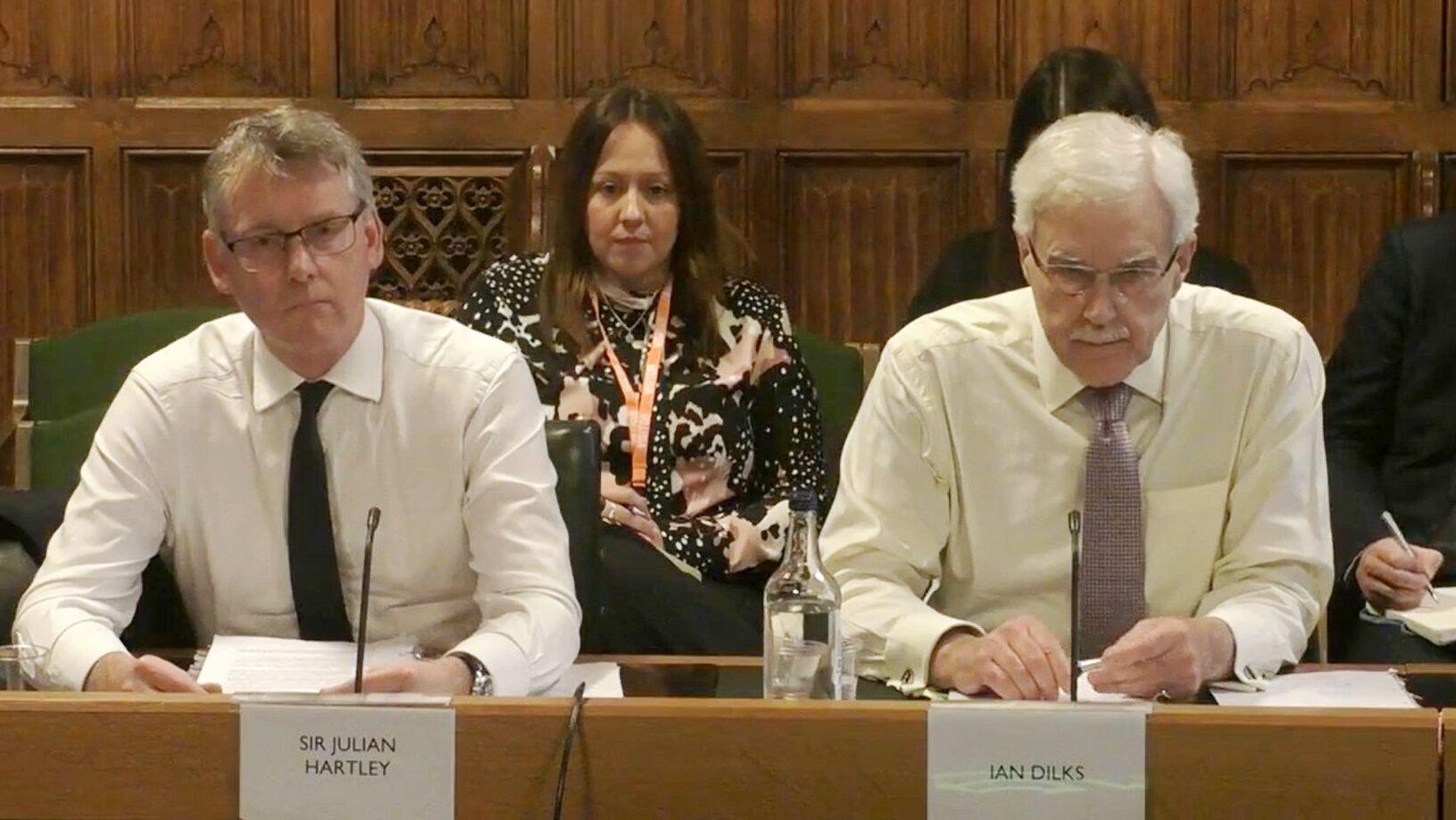Devolution or power grab?
Will Patricia’s Hewitt’s lightening review of ICSs in England hand more power to local managers or end up strengthening ministers’ grip on the NHS? Rhys McKenzie makes MiP’s case for a streamlined centre with and real autonomy for local healthcare systems in meeting the needs of their communities.

Last November’s Autumn Statement will be remembered for wiping out the last traces of Liz Truss’ ill-fated six weeks in charge of the country. Her government’s economic programme had already collapsed like a straw house in a hurricane, but it was left to the new Chancellor, Jeremy Hunt, to deliver the coup de grâce. Amid the dramatic economic U-turns, it was easy to miss one of the former health secretary’s other announcements: the appointment of Patricia Hewitt to review the role and accountability of England’s newly established Integrated Care Systems (ICSs).
We’re used to seeing policy making as a purely partisan development, so the choice of a former Labour politician – Hewitt was a formidable health secretary under Tony Blair – surprised many. But the move could signal clear intent from Hunt to secure wider buy-in to the review’s findings by winning cross-party support.
What is the Hewitt Review?
Despite its low-key launch, the Hewitt review could fundamentally shift the centre of gravity in the NHS. It will make recommendations on the role each part of England’s health system should play and who should be accountable to whom. ICSs, NHS England and other arm’s-length bodies are all in scope, so vast domains of power and responsibility are up for grabs.
The government claims the review is about empowering local health systems to improve outcomes by giving them more autonomy from national bodies. But critics see it is as nothing more than a politically-motivated move by the government to shift powers from NHS England – already seen by some in government as too powerful and too free from ministerial control.
Cynically-minded observers point to the extremely tight, three-month timetable as evidence that the review is simply cover for measures ministers want to introduce anyway. The one-month consultation period for gathering evidence, spanning the dormant Christmas period, lends some weight to this view.
Whatever the intentions, the review has already gathered views from NHS organisations, local government, the voluntary sector and trade unions – including MiP, which submitted evidence following a survey of members from a variety of NHS employers.
Managers want more autonomy
MiP members’ views varied considerably, but one consistent theme was local leaders wanting more autonomy over local decision making. Members described how being given more freedom to plan and deliver local health interventions during the Covid crisis, with little interference from government or NHS England, spurred innovation and led to creative solutions for complex problems which would have been impossible before.
Similarly, the temporary relaxation of the strict national targets and key performance indicators that each NHS provider is measured against allowed local leaders to make decisions based on local needs rather than national directives. This was also seen as positive development by managers who worked during the pandemic and, while members were not sold on scrapping national targets completely, more wiggle room in future would clearly be welcome.
Members also reported that NHS management productivity is compromised by inconsistent central planning and reporting cycles, last-minute, ad hoc requests for information, special initiatives requiring dedicated bidding, assessment and reporting processes, shifting baselines and overly-complex approval processes. A more consistent and clear planning and allocation cycle would, members said, release significant management time for better policy implementation on the ground.
What does a streamlined centre look like?
If these points look straightforward, implementing them begs a larger question which is more tricky to answer: what is NHS England’s role in this?
MiP believes the NHS needs a strong centre. Our members tell us that a a joined-up national strategy, with clear objectives and central support for local teams is essential. And as long as the NHS remains a publicly-run institution accountable to parliament – and hence open to political interference – we need a national body as a buffer between ministers and matrons.
To reconcile the need for both a strong centre and more local autonomy, MiP has urged the review to establish a clear understanding of what a streamlined centre looks like, by focusing on five core objectives:
- Setting a small number of strategic priorities
- Developing and regulating standards (clinical, digital and financial)
- Allocating resources in a timely and strategic fashion
- Investing in infrastructure (estate, technology, skills)
- Managing the NHS’s relationship with government
A streamlined NHS England should set clear expectations and evidence-based targets for providers and ICSs, focused on outcomes rather than the process of delivery. This means clear and consistent strategic planning and reporting timescales for money and activity, while minimising time-consuming ad hoc information requests and special projects.
What are ICSs for?
With a clearly defined role for NHS England, the next issue is establishing the core purpose of ICSs. Our survey showed that MiP members are concerned about potentially competing visions for the Integrated Care Board (ICB) model. Unless ICB roles are clearly defined, the tension between micromanagement and autonomy will persist. Clarity here is key.
Based on feedback from members, MiP believes that ICBs should focus on four core objectives:
- Co-ordinating and being accountable for local service delivery and health improvement
- Strategic planning and reporting
- Data management and analysis
- Change management and improvement
Such a model would be a powerful step towards a truly integrated health service and help to strike the right balance between local autonomy and central control. It would enable each part of the system to play to its strengths without getting in each other’s way.
Better use of data and digital
One significant aspect of the review, which emerged only when the consultation papers arrived, is improving NHS efficiency through digital innovations. While it was heartening to hear Hewitt refute the fallacy that the NHS has too many managers — it has fewer per 100,000 staff than any comparable health system — she also noted that the NHS is more reliant on non-management and non-patient-facing admin roles than most systems. This, she believes, is due to under-investment in digital systems.
Even the most NHS’s most ardent defenders recognise that its digital infrastructure is severely lagging. Using data to inform strategy and improve outcomes is the norm in almost every other industry and steps to bring the NHS up to speed are more than welcome.
In our evidence, MiP argued that promoting data literacy standards for NHS managers, through adequately resourced learning programmes, is essential. Making data more accessible to local and regional health teams is another must – even the good data the NHS has available does not always find its way to those who can make the best use of it. With cloud technology readily available, all staff involved in planning should be able to access and analyse real-time data.
Members highlighted examples of good digital frameworks already used in the NHS, such as the Digital Maturity Assessment and What Good Looks Like, which we believe are good foundations for further development and refinement.
ICSs also need the resources to implement new standards of working while trying to keep up with the existing intense level of demand. Good data collection and usage will take time to get right, but effective implementation will help to reduce the workload on managers.
Will it stick?
The countless NHS reviews, working groups and inquiries set up by the government in the last 10 years often feel like the policy-making equivalent of chucking pasta against the wall to see if it sticks. While it’s easy to see it as more of the same, the Hewitt Review certainly could have major implications for how the NHS devolves power to the network of organisations which plan and deliver our care.
With her report due to be delivered to ministers by the end of March, we will soon know what Hewitt’s recommendations are. Whether they will stick is a question that will take far longer to answer.
- Rhys McKenzie (r.mckenzie@miphealth.org.uk) is MiP’s communications officer.
Related News
-

The inspector falls: why the CQC needs a fresh start
After years of chaos, the Care Quality Commission urgently needs to rebuild trust and credibility with the public and the services it regulates. What needs to change and what are the priorities for new boss Sir Julian Hartley? Alison Moore reports.
-

Voice, value and vision: what analysts need from the NHS
Data analysts play a vital role in an NHS which is increasingly data-driven and focused on public health trends. But the NHS faces fierce competition for skilled analysts and many feel the health service fails to value them or fully use their talents. Alison Moore reports.
-

It ain’t what you do, it’s the way that you do it
The government’s upcoming ten year plan will try yet again to shift the NHS towards community, digital and prevention. The big question is how, writes Craig Ryan. Try honesty, patience, focusing on what matters and empowering staff and local managers—that’s what gets results.